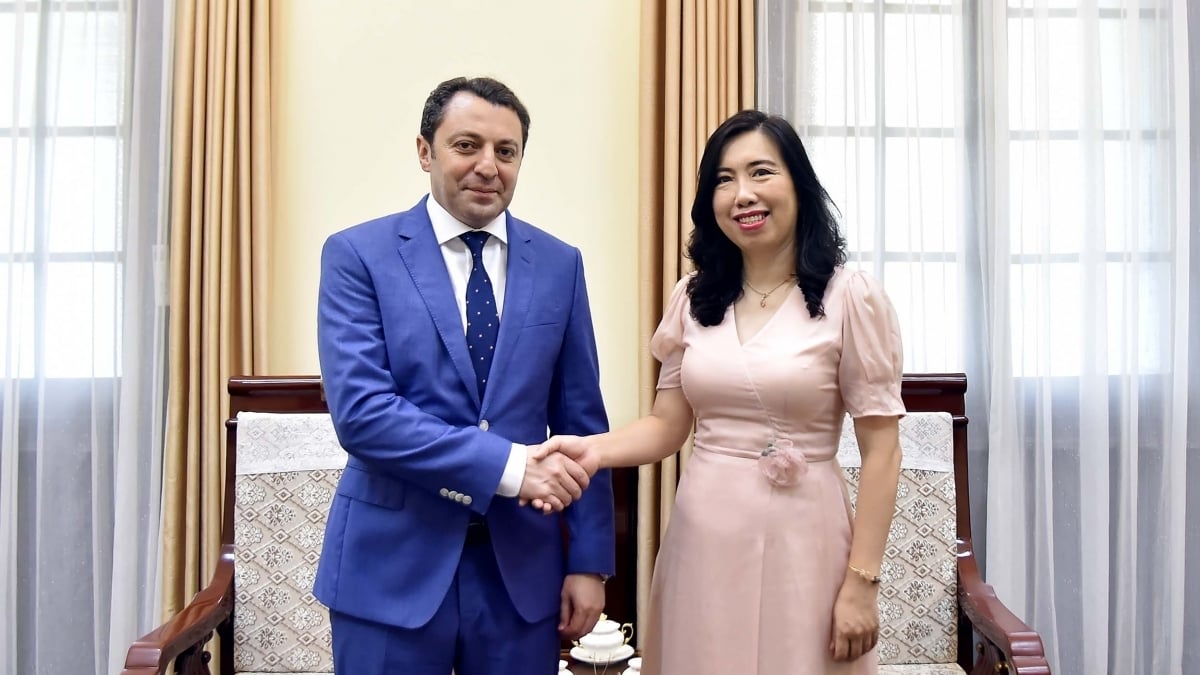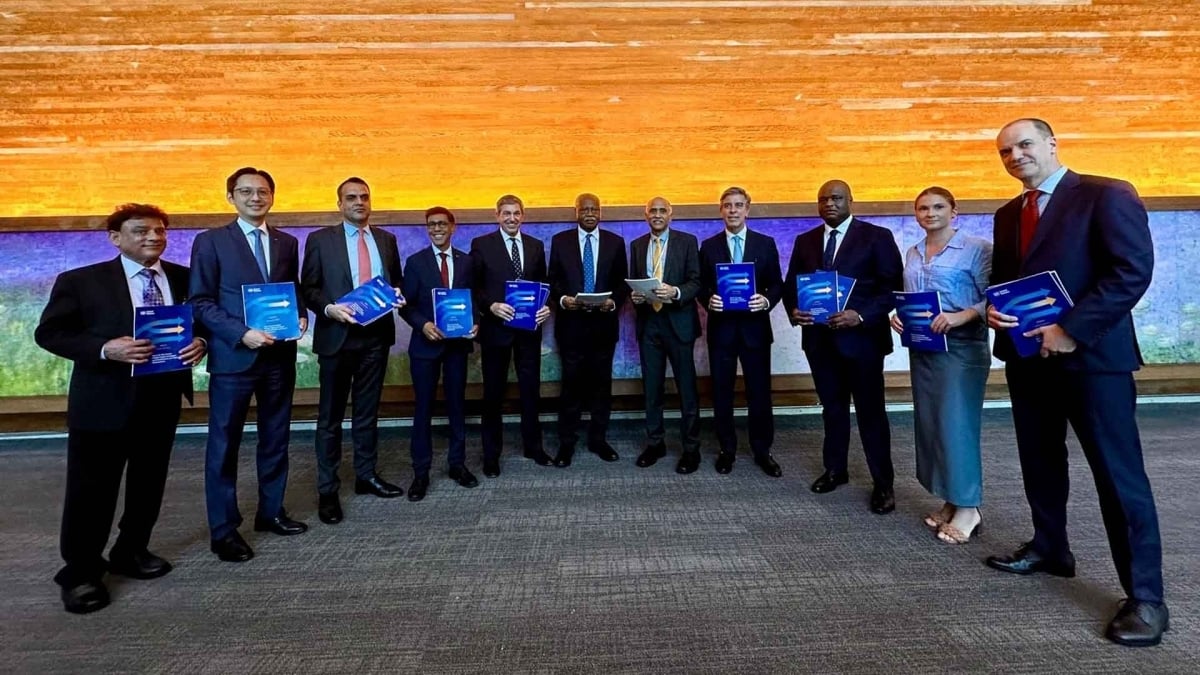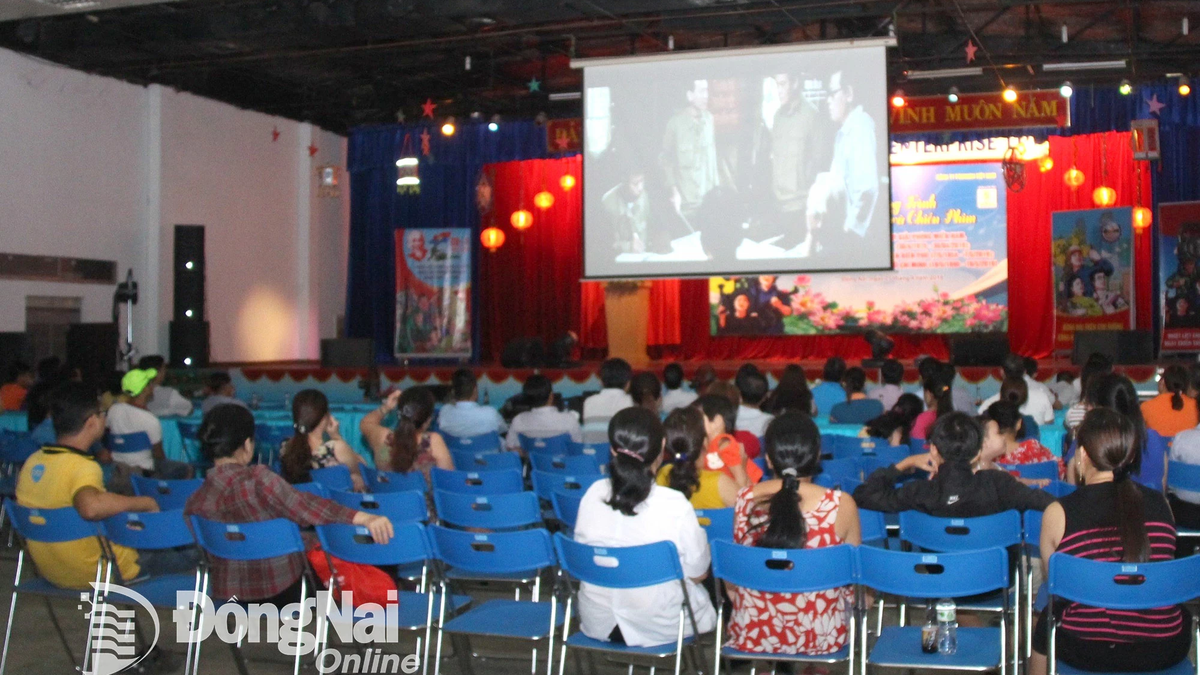
Over the years, Phin Ho commune has always created conditions for cadres to study, practice, and challenge themselves through daily work, especially for young cadres. Out of a total of 22 cadres and civil servants in the commune, Phin Ho currently has 21 people with university degrees, 1 post-graduate degree; 1 senior political theorist, 21 cadres with intermediate political theory degrees. Mr. Dieu Binh Duong , Secretary of the Party Committee of Phin Ho commune, said: To improve work efficiency and professional capacity for the team of cadres and civil servants; based on task requirements, every year the Party Committee of the commune organizes a review, assessment and classification of cadres and civil servants, especially young cadres, female cadres, and ethnic minority cadres to ensure proactive allocation of resources, have a plan for training, fostering, and arranging for proper use of expertise. Currently, commune officials and civil servants are arranged and assigned jobs suitable to their training and strengths, thus performing well in performing assigned tasks.
The entire Nam Po district currently has 305 commune-level cadres and civil servants. In order to use the right people for the right jobs, respect talents and cadres, avoid localism and improve the quality of operations, Nam Po district has directed the strict implementation of the process of examining and sending cadres for training and fostering, meeting the needs of agencies and units for cadres. Mr. Nguyen Van Tiep, Head of the Nam Po District Internal Affairs Department, said: Every year, based on the plan for training and fostering cadres, civil servants and public employees of the District People's Committee, the Department has consulted and coordinated with relevant agencies to organize training and fostering cadres in terms of professional qualifications, skills, theoretical qualifications and State management. In particular, the training and fostering work for cadres who are ethnic minorities is focused on.
From 2021 to August 2023, the district's agencies and units have organized training and fostering for 9,957 people; of which, 2,016 cadres and civil servants are ethnic minorities. Specifically, 6 training sessions on professional expertise and skills; 56 training sessions on political theory; training according to job positions and working skills for 538 cadres, civil servants and public employees; training according to professional titles for 198 people... Through training and fostering, the team of cadres and civil servants have been equipped and updated with knowledge and skills to meet the standards of civil servant ranks, leadership and management positions, and professional titles of public employees; at the same time, training in ethics and attitudes in performing public duties contributes to improving work capacity, quality and efficiency. Up to now, the communes have 299 cadres with professional qualifications from intermediate level or higher; 147 specialized staff with intermediate theoretical qualifications or higher.
It can be seen that the team of communal-level cadres and civil servants are the ones who directly implement the Party and State's guidelines, resolutions, policies and laws at the grassroots level. Therefore, in order to continue building a team of communal-level cadres and civil servants who are "both red and professional", in the coming time, Nam Po district will continue to focus on evaluating cadres to ensure impartiality, objectivity and authenticity as a basis for implementing the next steps in cadre work; improve the quality of planning work; pay attention to training and fostering cadres and civil servants, especially young cadres, female cadres and ethnic minority cadres according to regulations. Regularly innovate and improve the quality and effectiveness of cadre training and fostering; have annual and term-long cadre training and fostering plans according to management decentralization.
Party committees and authorities at all levels need to closely coordinate with training institutions in surveying and understanding the learning needs and the majors that need to be trained and fostered for cadres and civil servants; the work of considering and sending cadres and civil servants to study must be carefully and objectively selected to meet the requirements, conditions and prescribed standards; enrollment and assessment must be serious, strict and follow the correct procedures... Thereby, contributing to creating a breakthrough in human resource development, promoting comprehensive strength in performing political tasks and serving the people.
Source





























































































![[Infographic] In 2025, 47 products will achieve national OCOP](https://vphoto.vietnam.vn/thumb/402x226/vietnam/resource/IMAGE/2025/7/16/5d672398b0744db3ab920e05db8e5b7d)





Comment (0)